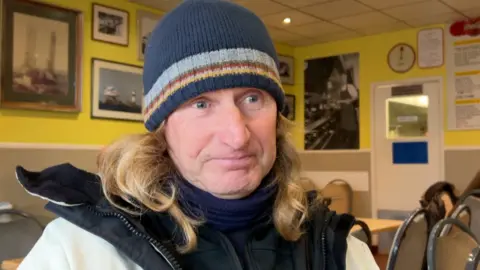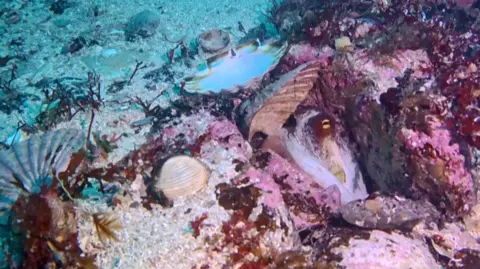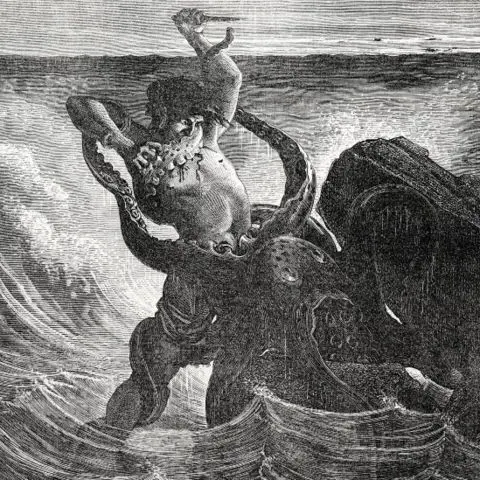'Octopus boom is decimating our shellfish catch'
 BBC
BBCA Guernsey fisherman says the industry is being put in peril by an explosion in the island's octopus population.
Steve Fallaize, a commercial fisherman for more than 30 years, said the molluscs had been multiplying in bailiwick waters – leading to the decimation of the local lobster, crab and shellfish catch.
"There's been a massive decline in shellfish in seven months - we think it's due to octopus because there's so many about," he said.
He said the situation had become so precarious, he would be doing his "best to survive" in the year ahead and hoped he would still "fishing by the end of it".
 JP Fallaize
JP FallaizeHe said the first six months of 2024 "yielded a very successful catch" but from July to the end of the year the fishing "just died".
"My earnings have completely gone in the last seven months," he said.
Mr Fallaize said the molluscs had been raiding his pots and he had pulled up more than 700 of the creatures in the last seven months.
He said while that left him with plenty of octopus to sell, there was very little demand for it locally and he was "cutting them up for bait" instead.
Octopuses had not been commonly seen around Guernsey for 50 years until 2020, but were famously described by French author Victor Hugo in his 1866 novel Toilers of the Sea.
Written in Guernsey - while the writer was politically exiled from France - the book features a fight between a fisherman and a giant octopus that drank the blood of its "victims".
"He draws you to him, and into himself," he wrote. "While bound down, glued to the ground, you feel yourself gradually emptied into this horrible pouch, which is the monster itself," wrote Hugo in one infamous scene.
 Getty Images
Getty ImagesOne Guernsey scallop diver is among those still captivated by the octopus - and recalls a number of encounters.
JP Fallaize told how he witnessed another diver in a battle with an octopus when he tried to stab the creature to take it home.
"It wrapped its tentacles round his mask, pulled his mask off and the regulator out of his mouth," he said.
"He was in such a fluster when he got to the surface he dropped his dive gear over the boat."

Mr Fallaize said when he first started diving four years ago he was lucky to spot an octopus.
"I was actively looking for them... now I see multiple octopus," he said.
"We are seeing them out in the sand burrowing down, on reefs and in areas you would not expect out in the open.
"Each one acts different and seem to have emotions – some are huffing and puffing and turning red. Some are quite inquisitive and poke their heads out of their holes."
Dr Kerry Perkins, fisheries, aquaculture and marine studies lecturer at University Centre Sparsholt in Hampshire, said environmental changes were likely responsible for the octopus "population boom".
This included a reduction in the number of natural predators such as eels which feed on young octopuses, combined with rising sea temperatures.
This combined with a good food supply meant the animals were in good health ahead of the "upcoming breeding season", Dr Perkins said.
Follow BBC Guernsey on X and Facebook. Send your story ideas to [email protected].
